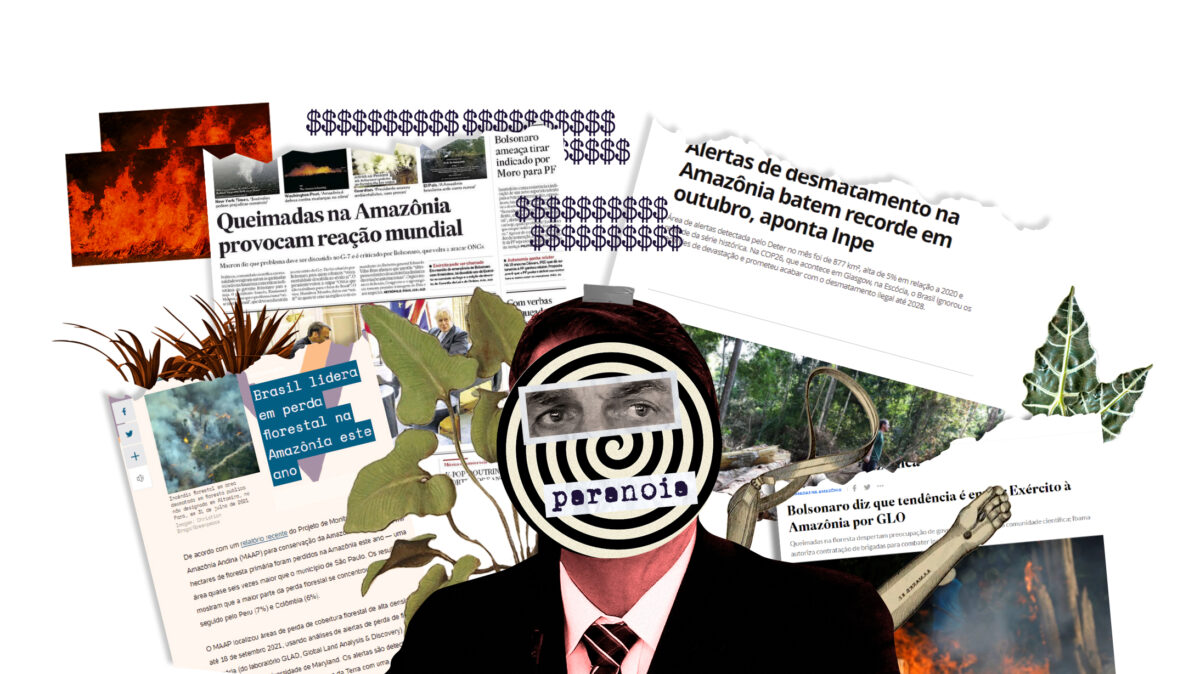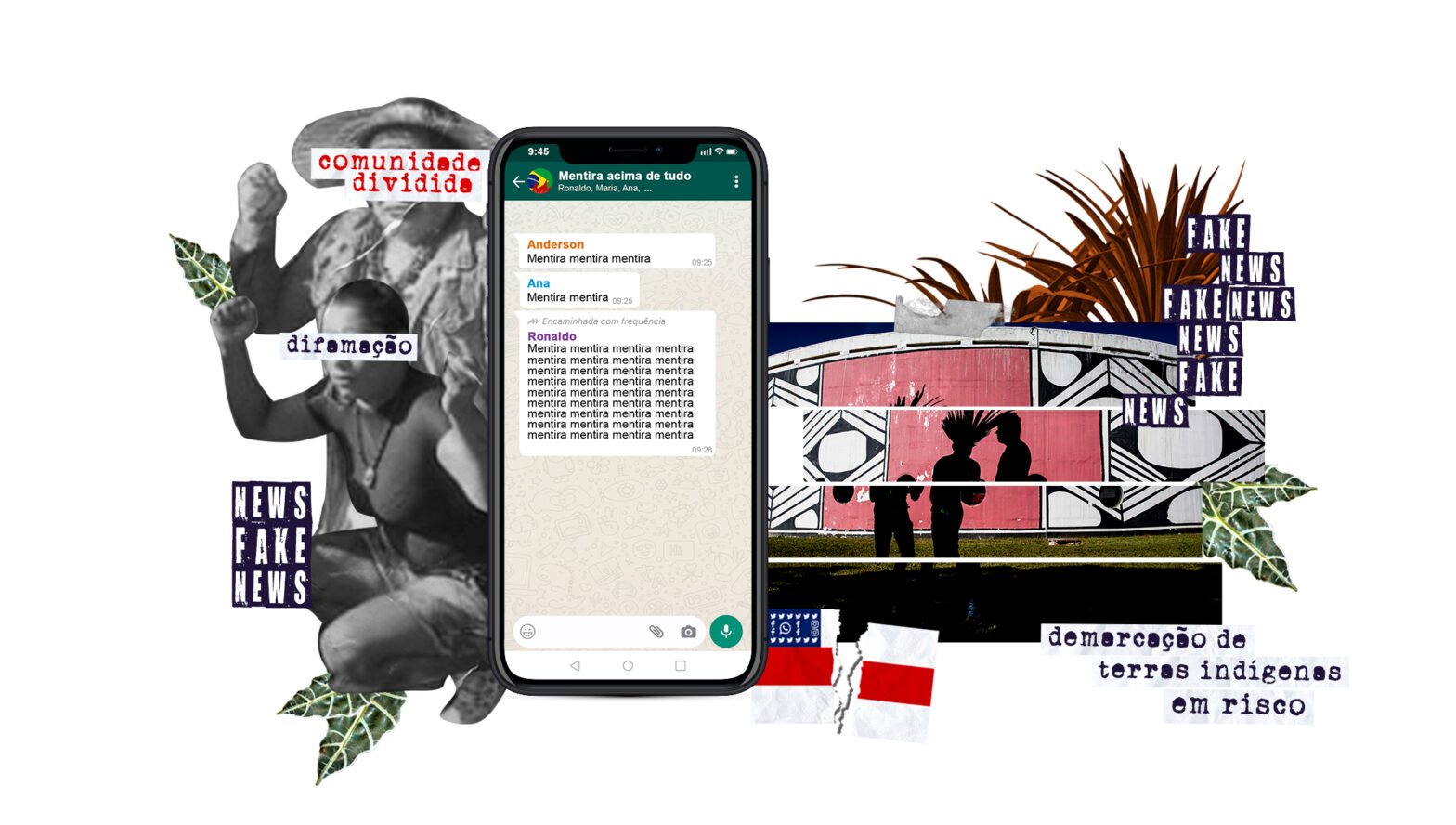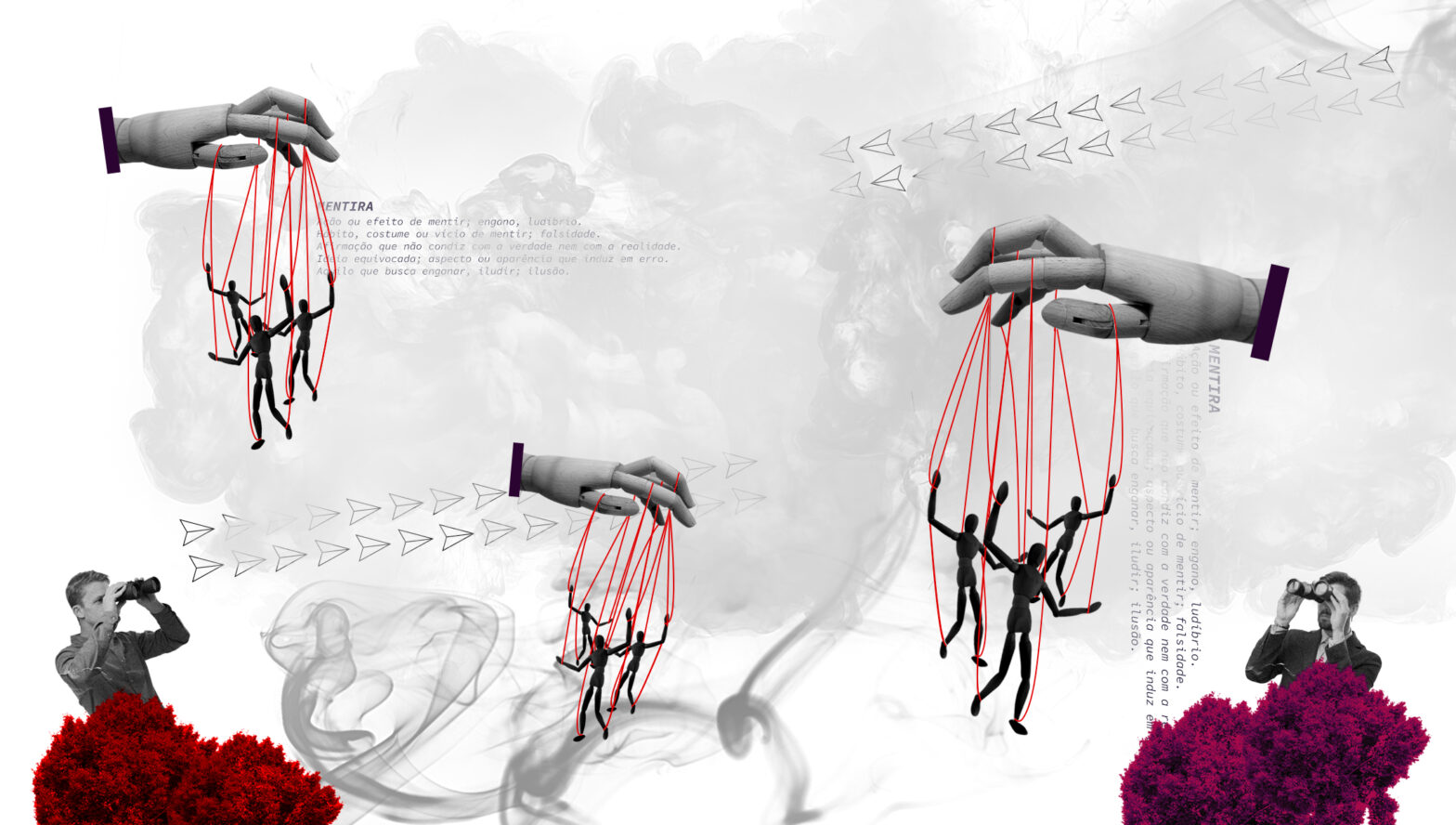Warlike discourse has replaced the protectionist mindset. Since the start of his term, President Jair Bolsonaro (PL) has spread, like fire, controversial statements about the risk of foreign invasion in the Amazon Rainforest. Although the President has never shown any proof of such dangers, the theory continues to be repeated on far right wing channels on YouTube. “Brazil is a peaceful country, but it can’t continue to be so,” was one of his quotes to cadets at a ceremony in Rio de Janeiro in 2019. A video of the speech has already reached one million views and 39,000 likes.
With the experience of having run the Ministry of Environment from 2010 to 2016, Izabella Teixeira, a key negotiator for the Paris Accords, rejects the current government’s stance that the main dangers to the Amazon come from abroad. To her, the national sovereignty belief is “political paranoia.” “When you fail to structure efficient responses with the presence and action of the State, you create the idea, via fake news or not, that we are under threat,” she said in an interview for the project Amazonas – Mentira Tem Preço [Amazonas – Lies Have a Price].
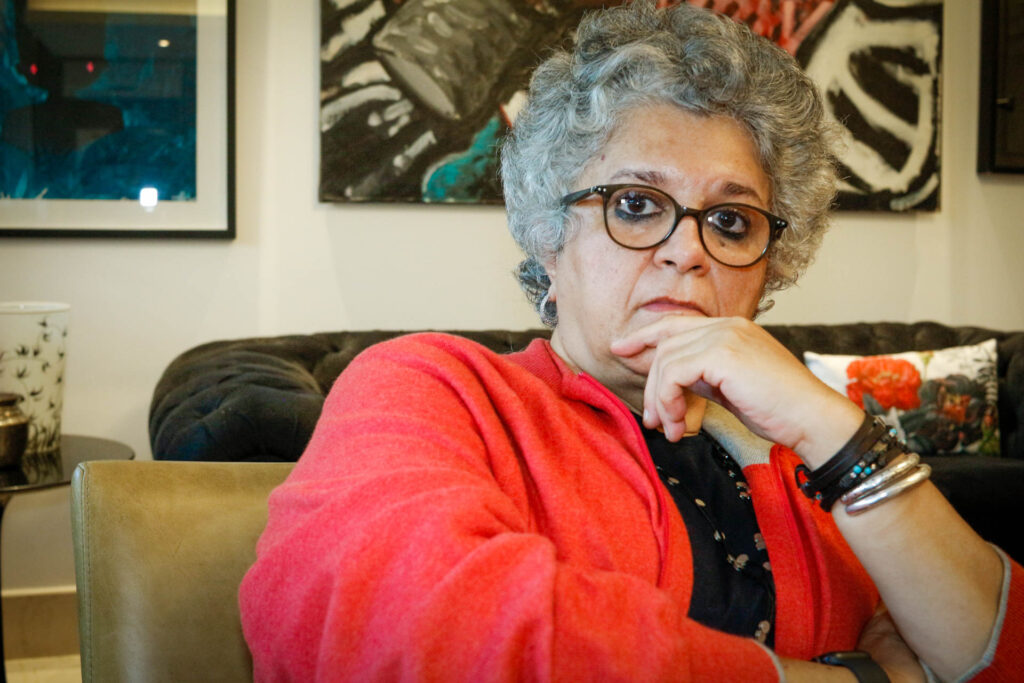
In the story created by the President and shared by government representatives, like Vice President Hamilton Mourão, Brazil is “an example of environmental conservation,” even though National Institute of Space Research (INPE), an internationally acknowledged government body, shows that deforestation levels broke a third consecutive record. In 2021, the third year of Bolsonaro’s term, deforestation rose by 21.97%, the highest rate since 2006.
“How do you deter this? By having Armed Forces at the ready,” said Bolsonaro during a live video in 2020. According to the President, Brazil doesn’t need other countries, like the USA or France, to protect the forest. With high numbers of deforestation and forest fires, the Bolsonaro administration gave up the billion-real Amazon Fund, maintained since 2008 by a foreign coalition to protect the forest. At the time, he said that no country would buy the Amazon Forest.
During another recent interview, with Folha de S. Paulo, Teixeira, who’s not affiliated to any political party, called the Bolsonaro administration’s strategy “fake green”: an adaptation of the term “fake news” to describe the government’s fanciful discourse about the environment.
The former minister, co-president of the UN International Resource Panel during COP26 (in Scotland), highlights that the country no longer has any effective measures against deforestation and has lost importance in international diplomacy. During Teixeira’s leadership of the MMA, Brazil saw advances in fighting and reducing the rate of deforestation. However, NGOs criticized changes to forestry laws, among other points, during Teixeira’s term.
Teixeira says that decisions and fake stories told by the government have negatively impacted urban populations and traditional and Indigenous rural communities; scientific institutions; organizations fighting illegal activities in the forest; and, consequently, Brazil’s international image. “This government came with the wrong message, and has been positioning itself politically with false arguments, questioning the diplomacy and scientific institutions that are allied with the Amazon Forest,” she says.
Once considered a leader in environmental issues, Brazil has become the villain and today acts as a non-blocker in key decisions. “While the government keeps peddling these theories and craziness, political spaces won’t be opened up, and Brazil won’t be the leader it should be as the holder of the world’s largest tropical forest.” Teixeira says that the government has to abandon this “retrograde discourse” so that Brazil can return to being a leader. Check out the main points of the interview:
InfoAmazonia: Since the beginning of his term, President Jair Bolsonaro has stated that Brazil’s national sovereignty is at risk, a theory shared by his aides and supporters – including some people recently punished by the Supreme Court for spreading lies. Is Brazil’s sovereignty really at risk?
Izabella Teixeira: There’s a paranoid political theory that says that Brazil has to prepare itself for an invasion of the Amazon by other countries. When you fail to structure efficient responses with the presence and action of the State, you create the idea, via fake news or not, that we are under threat. We have had 151 years of peaceful borders in Brazil. You want to tell me that everyone is invading Brazil? From the point of view of International Rights, all of the multilateral treaties that involve environmental issues, since 1972, have specific clauses on sovereignty. And Brazil has signed these agreements. An invasion would disrupt that order; it is like declaring war. For me, this is the first weak point with this theory. Because in the same way that the military swears to protect the peace and interests of the homeland, Brazilian diplomats also take the same oath.
In our current technological world, with satellites traveling 24/7, people photograph and see what they want. Brazil has to renew its ideas on sovereignty and understand how to use these tools to protect its territory, to have robust policies and strong institutions. The military structures have the institutional responsibility to work with intelligence, and to banish and fight crime.
Monitoring map from the platform PlenaMata shows the annual deforestation rates from 1998 to 2021 (from yellow to red). Zoom in to see details of the deforested areas.
In this sense, what does it mean to defend national sovereignty?
It means to exercise complete responsibility over your land, to protect and care for the Amazon Forest and the environment. You can’t declare sovereignty, you exercise it. However, the Amazon Forest is being invaded by organized crime. In French Guiana, they have arrested illegal Brazilian miners. So we are exporting crime. Where is the Brazilian capability to control their own? You want to talk about sovereignty while you affect other people’s territory? It’s not by creating fantasies and weakening institutions that you will handle this problem. The accusations we have, many of them as fruit of the investigative work of Federal Prosecutors, show that the Brazil that wants to exercise sovereignty doesn’t take care of its territory, and by not caring, allows or favors the work of organized crime in the country. Brazilian people should be aware of this and take a stand—all of us, even those living outside of the Amazon—to end deforestation, illegal mining, and the assault on natural resources. Brazil has to lead the efforts to contain organized crime in the Pan-Amazon region.
On several occasions, Jair Bolsonaro has stated that Brazil is a reference both in the environmental preservation of the Amazon and in the field of human rights. Are these claims true?
Up until this administration, Brazil has led great continuous and progressive efforts to deal with deforestation. This government came with the wrong message, and has been positioning itself politically with false arguments, questioning the diplomacy and scientific institutions that are allied with the Amazon Forest. Brazilian socioenvironmental management was based on three principles: science, civil society, and international relations. Bolsonaro’s administration destroyed all of it. He dismantled environmental governance systems, weakened public environmental and human rights institutions, demolished spaces for democratic dialogue with civil society, and takes positions that signify setbacks. The government only interacts with a few sectors of society and business community—the ones that support it. The country has imploded the federal relationship with governors not only in the health sector, but also in the environmental sector. Brazil is causing an increase in deforestation, and not only in the Amazon. We have deforestation on public lands, why doesn’t the government talk about that? This year the budget for IBAMA and ICMBio (government bodies dedicated to preventing deforestation and caring for the environment) was reinstated by Senator Katia Abreu (a member of the ruralist bloc). Brazil, alongside Tuvalu and Venezuela, shows the largest setbacks in sustainability rates.
“Deforestation is an indication of a country that is poor, insecure, and that doesn’t uphold human rights. It is a much larger commitment than not letting the forest be cut down.“
Izabella teixeira, FORMER MINISTER OF THE ENVIRONMENT
At the UN Conference on Climate Change, Brazil committed to ending illegal deforestation by 2028 and polluting gas emissions by 2030. But during Bolsonaro’s administration, deforestation reached new record highs. Is reaching those commitments possible?
Brazil can end deforestation. There are laws and institutions that are capable of that, but, if left to the current leadership, nothing will be done. This country has fought deforestation since 1989. When we committed to the goal in 2015, 15% of Brazil’s emissions were associated with deforestation. We had a planned trajectory to reduce it until it reached a point where we’d need a structure to fight crime, which is a non-trivial matter that would require different arrangements and money. The State Prosecution Task Force’s work shows just how deforestation is connected to other crimes. And obviously, this cuts through the interests of states and cities, involves different political forces, organized criminal militias and a lot of money. Deforesting isn’t cheap, so you have to dismantle gangs and financial arrangements that fund all of that. Because in Brazil, there is a huge amount of tax evasion tied to deforestation. When we set the goal to 2030, we thought this would be over in 2022 or 2023. What does it mean for “it to be over?” To get close to 3,000 square kilometers, which is the goal. This administration has imploded that. Deforestation is an indication of a country that is poor, insecure, and that doesn’t uphold human rights. It is a much larger commitment than not letting the forest be cut down. Deforestation is a sum of many things that have to be let go of. But the Bolsonaro administration, looking at all that it has done so far, has no condition to think like that.
But the government says it has a new environment policy.
There isn’t any new policy in the field. Actually, it’s a fake policy. Ending deforestation means generating sustainable investments, jobs for people living in the cities, regional development with a healthy and protected forest. This is a vision Brazil has yet to achieve and it has to renew its commitment to. The Amazon Forest is one of the world’s richest assets, and its people are some of the lowest on the Human Development Index (HDI). This is wrong, and there are people that, in the 21st century, still disregard that.
How does the world see Brazil’s commitment towards protecting the forest, Indigenous population and traditional communities?
Brazil has lost its alliances, its political spaces, its partnerships, and it’s seen with great suspicion in the environmental area. A profound suspicion that wasn’t there before. Brazil used to guide and lead, and today it has to act as a “non-blocker” to have any credibility. It’s a country that broke its tradition of international cooperation and imploded the Amazon Fund. Even though Brazil is getting some things right, and it is because there are working institutions, Brazil has no credibility in the world.
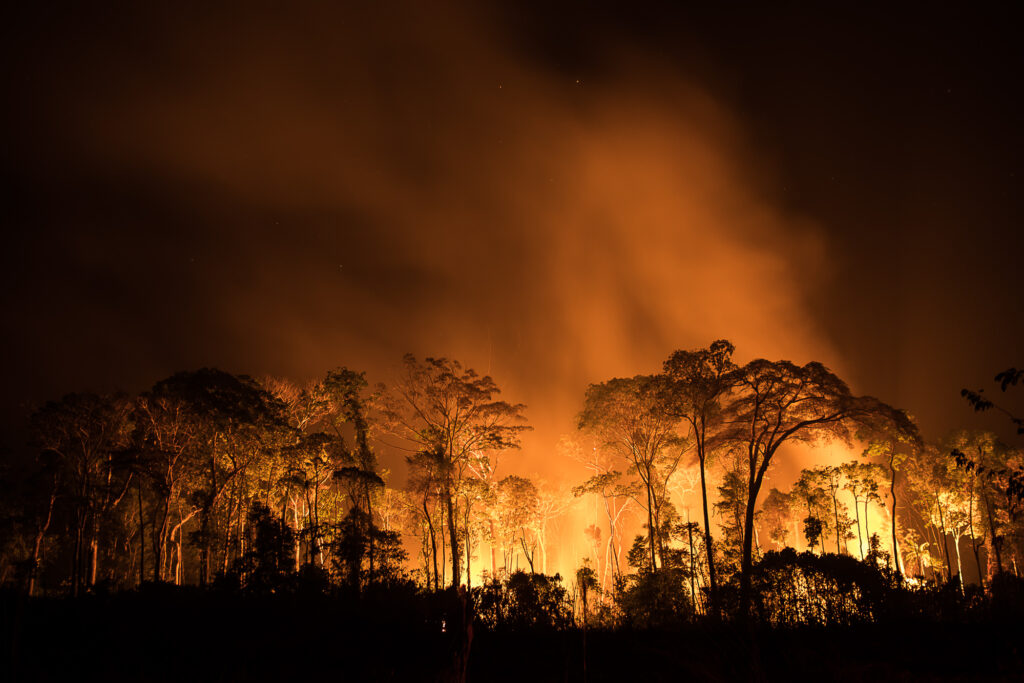
Are those in power getting away with it?
They have already gotten away with it. And when they get away with it, it wrecks everything. These conspiracy theories about the Amazon are of interest to small powers, instigating fear so they don’t have to work on solutions. In the environmental area, you have two sides of the coin: you’re either part of the problem or part of the solution. It’s like with the climate. You’re either on the problem side and you’re an emitter, or you’re on the solution side and you mitigate.
Brazil’s federal government says that the Brazilian environmental problem only exists in “narratives” from the press, both national and foreign. Is that so?
Deforestation continues, forest fires are growing, city and river pollution is increasing, energy scarcity is present and São Paulo has a new water crisis. I just paid my power bill and noticed an absurd increase in the amount. Is this a narrative? The government is profoundly myopic about the country’s political and environmental reality, and it also forgets that the world knows Brazil. The Brazilian government is against Brazil. To justify loosening the control of the State or the inefficiency of many actors in dealing with it, it projects a series of ideas based on fear, on creating risk and leading people into the paranoia of Amazon internationalization. The world has changed and Brazil has got to change this outdated discourse. The Brazil of today wants to use yesterday’s solution, ideas that have no future. From the government’s point of view, Brazil is inefficient, doesn’t know how to build things, works little, and likes to vilify and create controversies as a way to take the spotlight off its inefficiencies. As long as the government maintains these theories, we can’t open up the political spaces and exercise the leadership that Brazil is supposed to as the holder of the world’s largest tropical forest.
What is the narrative that Brazil needs?
Narratives are always about the future, not about the past. And Brazil needs to abandon incorrect discourse, that we are “the world’s largest agricultural producer and we maintain the environment,” because we actually have more than 100 million hectares of degraded land. Thanks to science, we know that to keep on deforesting areas that are not productive is a mistake. You can’t also defend it by saying you can deforest just because you have the legal right to. What I’m trying to say is: how is Brazil going to be competitive in a low-carbon world? What are the challenges for Brazilian industry? How should we deal with conservation? Because no one will be able to do it without water, without environmental services, with forest fires all the time, with poverty, and with a shortage of natural resources.
Brazil is wasting precious time. Global crises are coming and we deal with it seemingly by singing 1970’s soccer jingles: “90 million in play, save the team.” I’ll use a soccer analogy to explain what we got ourselves into. Brazil, a country of almost 250 million people, lost a soccer match in the 2014 World Cup by 7 to 1. We have the talent to be among the soccer elite, we can correct our course and never again look at a 7 to 1 losing score. But we have to remember that it happened so that it doesn’t happen again. Everything that Brazil is doing today in the socioenvironmental area is a big mistake. These people don’t know Brazil, they don’t love Brazil. If they did, they’d be taking care of it and not destroying it, breaking it, polarizing it. You see a kid with sad eyes holding a rifle (this happened, with Bolsonaro, in October 2021). What is this? What I’m trying to say is that there are other “7 to 1 episodes” coming to Brazil if it doesn’t wake up.
CHECK BRAZIL’S DEFORESTATION RECORDS YOURSELF
Check out the sites below where you can easily access information about the increase of deforestation:
Imazon: a research organization focused on promoting conservation and sustainable development in the Amazon region. View their monthly newsletters here.
National Institute of Space Research (INPE): an internationally recognized agency of the Ministry of Science, Technology and Innovation. INPE manages Terrabrasilis, the Prodes and Deter system that uses satellites to monitor clearcutting deforestation in the Amazon Legal region. Check out the data from 2021.
MapBiomas: a dynamic platform to access data and maps of Brazil developed by a collaborative network of specialists. You can discover the deforesting situation in every region and other related data. Access the platform here.


